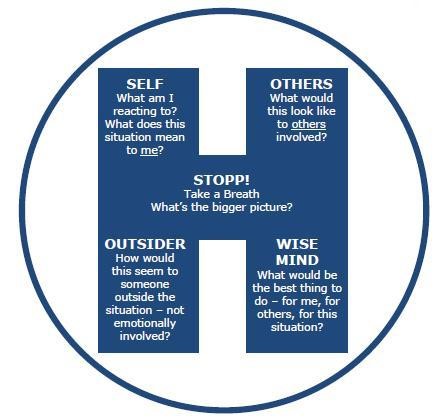Why do people think and act the way they do? Why are some people miserable and others happy for no reason? How does the human mind work and how do we learn? Every day, we make instantaneous judgments predicated on what we see and hear and based on our past experiences. Depending on where we stand, the view of a situation may seem different.
The perspective that each person adopts influences how things actually are. Therefore, each individual develops its own reality depending on his feelings and thoughts, given the circumstances. The same decision, event, statement or picture can mean something very different to different individuals or groups.
Once an individual has adopted a perspective, it is difficult to suspend or change it and even harder to accept others perspective. What is more, if a perspective is based on mistaken assumptions, the consequence is often a misleading conclusion, missing the real issues.
Given that a curse can easily turn into a blessing, it’s important to have foundational beliefs that make us appreciate the good things in our life. Over-thinking and analyzing a situation that is really out of our control creates expectations that may not be met. Practicing the art of detachment can bring acceptance and new insight.
In case of an unfortunate event, a stressful situation or any kind of negative experience, the fastest way to bounce back and build resilience is by changing your perspective. This shift in mindset could allow you to gain strength and continue to be the creative force in your life and the ‘Essential 10’ can help to move forward.

The ‘Essential 10’ to change your perspective
- Failure may be a step toward success: all successful people have failed, but they have not stopped after their failures
- Believe in people: Instead of assuming that your friend, colleague, or family member meant something hurtful, talk about it
- Show gratitude: Think about what you do have, instead of what you don’t have
- Focus on progress: It’s not about being perfect, it’s about being perfectly in progress
- Stop procrastinating: Spend your time valuably; it is never too late to learn something new
- Be confident: Write down positive thoughts and repeat positive statements to yourself
- Envision your future: think how your future could be if you changed your perspectives
- Stop thinking in terms of “should”: never underestimate your inner feelings, stop living in a framework defined by others
- Broaden your horizon: Educate yourself and keep your mind open to new ideas and experiences
- Think the bigger picture: In any stressful situation, think positively and try to find out a solution.
BUILDING RESILIENCE: Read in this series





































































































































